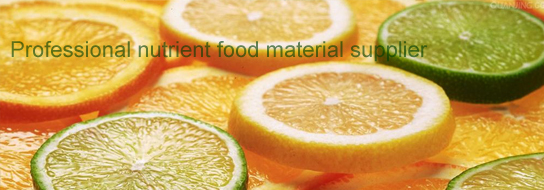|
 |
 Plant extract
Plant extract
|
Plant extractives series:There are one or various active ingredients obtained directly and concentrated by adopting physical and chemical extracting processes, with herbs as the materials, but the structures of the effective ingredients have not been modified. According to the different herbal ingredients, glycosides, acids, polyphenol, polycose, flavone and alkaloids are produced, and according to the appearances of the final products, the substances can be classified into herbal oil, ointment, powder and crystalline, etc.
It is a sublimate of TCM medicinal material, and the administrating range is also broadened. With the trend of “recovery to nature” and “green consumption”, herbal extract will become the core products in Industrial markets, including natural drugs, healthcare products, foods, cosmetics and tobaccos etc. These products have become the popular products in international market with available market space. |
| Bilberry extract |
Chemical name: Bilberry Extract
Extractive source: Fruit
Genus: Ericaceae Vaccinium
Active ingredients: Anthocyanins
Specifications: 25%
Properties: Purple powder
Usage:
Bilberry is rich in anthocyanins. More than 15 kinds of different anthocyanins are found in Bilberry. Anthocyanins may help maintain capillary integrity and stability of collagen. Anthocyanin is also a powerful anti-oxidants. A large number of clinical studies have shown that cranberry in the treatment of circulatory discomfort, varicose veins, other veins and arteries are very effective. Anthocyanin can steady phospholipids in endothelial cells and increase collagen and mucopolysaccharides, which maintain structural integrity of arterial wall synthetic material for protecting veins and arteries. Anthocyanins also help to prevent platelets from aggregating and adhering in the endothelial cell surface.
1. Normalization of capillary permeability
Anthocyanins have a strong "vitamin P" activity, which can increase intracellular vitamin C levels and reduce capillary permeability and fragility. This feature can reduce the blood-brain barrier permeability to eliminate harmful free radicals.
2. Vascular disease
In view of its role in the normalization of capillary permeability, blueberry anthocyanin was used for capillary fragility, blood purpura, a variety of brain circulation disorders (similar to the corresponding role of Ginkgo biloba), venous insufficiency, varicose veins and fragile capillaries due to kidney blood loss caused by trace in urine (capillary leak).
3. Eye diseases
Bilberry extract demonstrated significant function to eyes. Presumably it may improve the transfer of oxygen and blood to the eye capability. Many eye diseases, including cataract formation and macular degeneration, are due to the ultimate source of free radical damage to the eye. Bilberry extractive as a powerful antioxidant, can protect the eyes from free radical damage.
4. Improvement of eyesight
Scientific research has shown that cranberry extractive will lead to the improvement of night vision acuity, black as the regulation and visual recovery after flashing faster. Further studies confirmed these results. These results are particular importance for who suffers retinitis pigmentosa, and day-blindness (day blindness – under the light of day can not see clear as under dim light).
5. Effect on platelet
Bilberry extract can relax excessive platelet aggregation, platelet atherosclerosis and thrombosis formation and so on. Anthocyanins and other flavonoids both have marked anti-platelet aggregation effect.
Storage: Dry and cool environment, avoid sunlight and high temperatures
Shelf life: 2 years |
 BACK BACK |
|
|
|
|